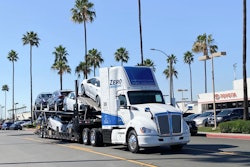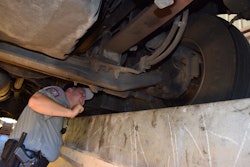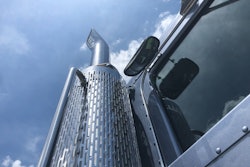There’s a delicate balance when it comes to using diesel fuel to cook off NOx emissions to meet the California Air Resources Board’s tough 2027 nitrogen oxide (NOx) standard, but after plenty of testing, Eaton and Tenneco are reporting success with their jointly produced integrated exhaust thermal management system.
Following their partnership in March 2021, both companies began taking a closer look at how they could lower NOx thermally with a diesel-fueled exhaust burner to meet CARB’s 2027 NOx requirement of .02 g/bhp-hr without cranking up carbon dioxide.
They found success on a 2020 Cummins X15 engine equipped with their exhaust burner system, cylinder deactivation and light-off selective exhaust catalytic reduction. During low load cycle (LLC) testing at the Southwest Research Institute, NOx dropped to .02 g/bhp-hr while C02 remained neutral. (CARB’s 2027 LLC requirements are .05 g/bhp-hr, or a 90% drop from current standards).
[Related: ATA panel discusses emissions reductions, sustainability]
During the Federal Test Procedure (FTP) heavy-duty transient cycle, which CARB set at .02 g/bhp-hr for 2027, NOx dropped even further to .01 g/bhp-hr. CO2, however, increased .9%.









